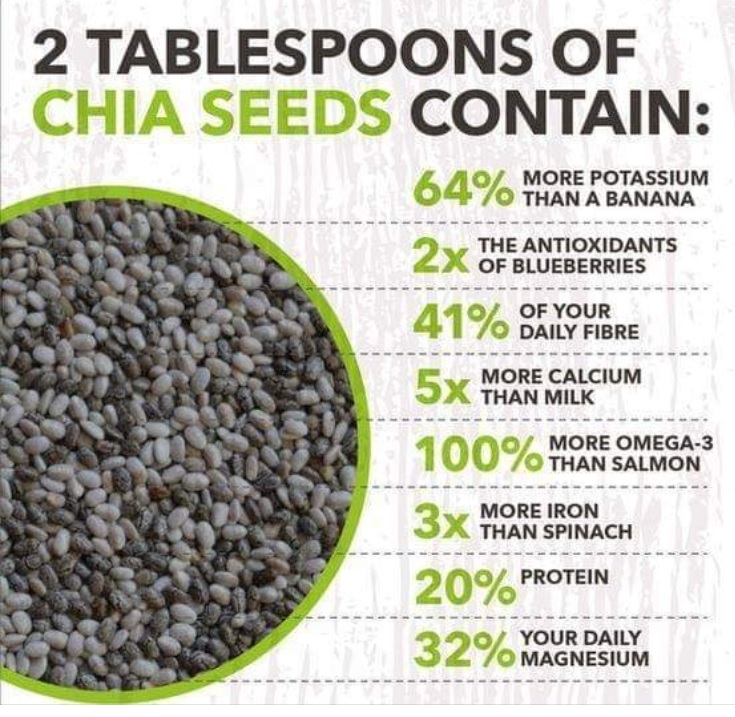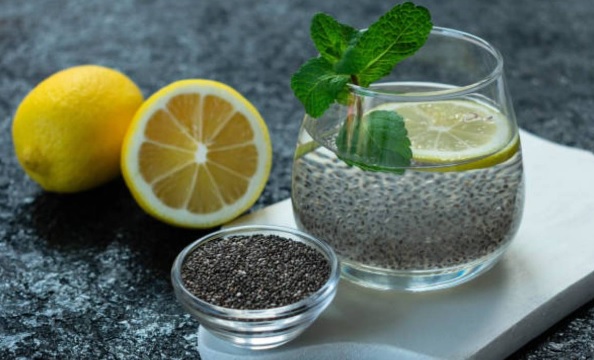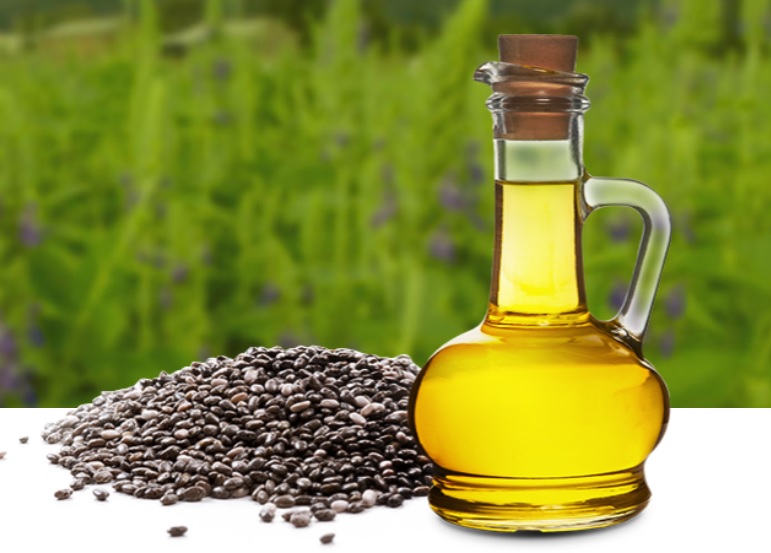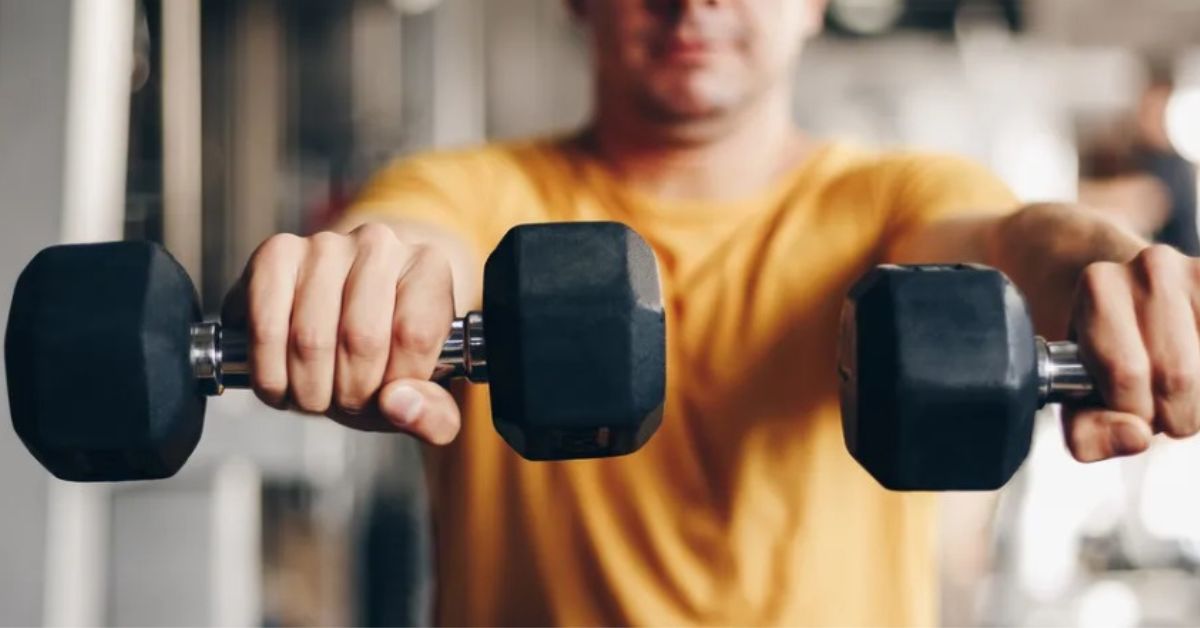Chia seeds are small and come from a plant like mint, called Salvia hispanica. A plant of towering stature, its seeds are a miniature delight and defies norms with blooms so colorful. Indigenous people have eaten chia seeds for ages. The word “chia” comes from an Aztec word “chian,” meaning “oily.” Chia seeds are sometimes nicknamed “running food” for energy and “super seeds” due to their rich nutrients and benefits. They have an ORAC (Oxygen Radical Absorbance Capacity) value of around 10,250 per 100 grams, which means they’re really good for us. The awesome thing is that chia seeds are full of good stuff that our bodies love. Chia seeds predominantly flourish in countries like Mexico, Olivia, and Argentina, nestled within the regions of Central and South America. These spots are great for chia plants- they’ve got the right weather, rain, and soil.
The price of chia seeds can differ based on the brand, size of the package, and whether they’re organic. Typically, a small 8-ounce package could range from $5 to USD 10. Buying in larger amounts might save money.

Chia Seeds: From Ancient Superfood to Modern Marvels
Long ago, when Aztecs and Mayans thrived (around 600 to 1500 AD), chia seeds were the hidden superhero food for native people in America. Aztecs, warriors, and Mayans, smart traders loved these tiny seeds for energy during battles and adventures. Aztecs even used chia seeds in religious ceremonies for gods. But then, things changed, and chia seeds disappeared. Luckily, in the 1990s, people remembered them, and now they’re back! In 2019, chia seeds were a big deal, worth about $1.5 billion worldwide. In 2020, people produced about 45,000 metric tons of chia seeds all over the world. So, chia seeds are superheroes in our meals again!
Chia Seeds: Global Culinary Odyssey
- Discover chia-enriched oat bowls topped with berries for a morning indulgence. Dive into Scandinavian-inspired chia puddings, marrying Nordic simplicity with chia’s nutritional complexity.
- Journey across the diverse landscapes of Africa, where chia seeds have made their mark.
You could try these chia porridges; they mix right into traditional porridge styles from different continents for a tasty twist. Uncover North African desserts adorned with chia seeds, offering a delightful crunch.
- In the Middle East, chia seeds harmonize with time-honored recipes. Get ready for hummus with a chia surprise! The nutty vibe of chia seeds could take your dip game to a whole new level of yum. Delve into chia-enriched falafel, infusing these iconic chickpea patties with an extra layer of goodness.
- On Pacific islands, chia seeds find their way into tropical fare. Imagine coconut-infused chia puddings, a nod to the islands’ lush landscapes. Get a taste of chia-infused seafood dishes-they blend ocean flavors and amp up the nutrition!
- From Mexican chia-infused horchata to Indian-inspired chia laddoos, chia seeds dazzle in global desserts. Experience the marriage of textures and flavors, transforming ordinary sweets into extraordinary treats.
Venture into these culinary corners of the world, where chia seeds are more than an ingredient – they’re a bridge connecting cultures, flavors, and the joy of sharing nourishing meals.
Chia Seeds’ Nutrients at a Glance
Carbs: Around 12g per ounce.
Protein: About 4g per ounce, impressive for a plant.
Fats: Roughly 9g per ounce, mostly heart-healthy omega-3s.
Fiber: A remarkable 10-12g per ounce, aiding digestion.
Vitamin B: For energy and health.
Vitamins: Just two tablespoons offer 15% vitamin C and 10% vitamin E.
Zinc: For boosting the immune system.

The Multifaceted Health Benefits of Chia Seeds
- Antioxidant Power: Chia seeds pack antioxidants that shield your cells from harm by pesky free radicals. Chia seeds have antioxidants (chlorogenic acid and caffeic acid) that keep cells safe from troublemakers called free radicals.
- Heart Health: Researchers dug into chia seeds and saw cardiovascular benefits, proven by studies. Chia seeds omega-3s can help kick out bad cholesterol and calm inflammation, a heart-friendly duo. This research spotlights chia seeds as a promising wellness aid, especially for heart-related issues and inflammation control. Chia seeds boast an omega-3 to omega-6 fatty acid ratio of about 3:1, contributing to heart health and inflammation reduction.
- Digestive Health: The fiber in chia seeds promotes healthy digestion, prevents constipation, and supports gut health. Chia seeds are top-notch in the plant world for alpha-linolenic acid (ALA), a type of omega-3 fatty acid. Chia seeds are incredibly high in soluble fiber, which can absorb water and expand in the stomach, contributing to a feeling of fullness and aiding digestion.
- Blood Sugar Regulation: Chia seeds have a cool superpower – they can slow down how fast our bodies turn carbs into sugar. This helps keep our blood sugar levels from jumping up too fast after we eat. For people with diabetes, this is a big deal because it helps keep their sugar levels steady. By adding chia seeds, people with diabetes might find it easier to manage their sugar levels and feel better overall. But remember, it’s smart to chat with a doctor or dietitian before making any changes to a diabetes plan.
- Bone Health: Chia seeds contain essential minerals like calcium, phosphorus, and magnesium, promoting strong bones and teeth.
- Gluten-Free Protein: Chia seeds are like a superhero for folks who don’t eat meat or gluten. They’re full of plant protein and gluten-free, which is great if gluten bothers you or if you’re into vegetarian eating. Chia seeds are like health boosters, but for the best perks, team them up with other good eats in a balanced diet.

Chia Seeds: Boosting Fitness and Endurance
- Steady Energy: Chia seeds provide slow-releasing energy, keeping you fueled during workouts and activities.
- Hydration Help: Chia seeds can hold lots of water, helping you stay hydrated and perform your best. Chia seeds soak up water, like 10-12 times their size, keeping you hydrated and electrolytes in check. Chia seeds can soak up the liquid and become a gel. This helps keep us hydrated and gives us energy.
- Electrolyte Support: Chia seeds contain electrolytes like sodium and potassium, crucial for muscle function and preventing cramps.
- Athletic Ally: Whether you’re hitting the gym or going the distance, chia seeds can be your fitness companion, supporting your journey to better performance.
Potential Concerns and Precautions
- Tummy Time: Eating too many chia seeds might upset your tummy with bloating or gas. Start small to see how your tummy reacts.
- Allergy Alert: Some folks might be allergic to chia seeds, especially if they’re allergic to other seeds like sesame or mustard. Check with a doctor if you have allergies.
- Count Calories: Chia seeds are full of goodness, but they also have calories. If you’re watching calories, eat just the right amount.
- Kidney Concerns: Some reports mention kidney issues when chia seeds are mixed with high-oxalate foods. Those foods can be hard on your kidneys and even raise your risk of kidney stones.
Chia Seeds and Medications: What You Should Know
- Diabetes Meds: Chia seeds slow sugar digestion, great for diabetes. But if on blood sugar meds, they might lower sugar too much.
- Blood Pressure Pills: Packed with potassium, it’s good for blood pressure. But taking too much with pills could mess up levels. Tell your doctor, especially if you’re on meds like Zestril.
- Medicine Timing: Chia’s gooey fiber can slow down some meds. Take chia seeds and meds at different times if timing matters.
- Blood Thinners Alert: Chia seeds and blood thinners might not mix well. More bruising and bleeding are possible.
- Cancer Concern: Chia oil might fight cancer, but using it with cancer meds needs more research.
- Cholesterol Meds: Chia seeds can help lower cholesterol. If on statins, chat with your doctor before doubling up.
Fun Chia Seed Ideas: From Pudding to Parfait
- Chia Pudding: Mix chia seeds with milk and sweetener and let it sit. It becomes like pudding! Add fruits, nuts, or granola on top.
- Smoothie Power: Include chia seeds in your smoothie. They give extra fiber, protein, and omega-3s without changing the taste.
- Yogurt Fun: Layer chia seeds between yogurt and fruits for a yummy crunch in a parfait.
- Salad Boost: Sprinkle chia seeds on salads for more nutrition and a nutty taste.
- Oatmeal Twist: Stir chia seeds into cooking oatmeal. They puff up and add a nice texture.
- Baking Trick: Use chia seeds instead of eggs in baking. Mix with water for a gel that works like eggs.
- Tasty Bars: Add chia seeds to homemade granola bars for crunch and nutrition.
- Jam Magic: Mix mashed fruits with chia seeds for an easy jam that thickens naturally.
- Chia Water: Mix chia seeds with water and a splash of lemon. It’s a refreshing drink with a twist.
- Soup Secret: Thicken soups or stews with chia seeds. They boost nutrition without changing the flavor.
Remember, chia seeds get jelly-like when mixed with liquids. Start small and have fun trying these chia ideas!

Buying the Best: Navigating Quality Chia Seeds
- Go Organic: Choose organic chia seeds.
- Color Check: Good seeds are black or white, not dull or off-color.
- Feel the Texture: Quality seeds are dry, not sticky. You can check by touching it.
- Packaging Matters: Pick seeds in sealed bags or containers to keep them fresh.
Chia Seed Supplements: Your Workout Pal in Different Styles
Guess what? Chia seeds can be your secret weapon for workouts, and they come in all sorts of cool ways that are easy to use.
- Chia Powder: It’s like a magic sprinkle for smoothies or cookies, making them super healthy.
- Chia Capsules: These little chia seed superheroes come in pills. Just pop them like vitamins!
- Chia Oil Soft gels: Get chia power in tiny oil capsules for your heart and joints!
- Chia Energy Gels: Sports enthusiasts love these gels with chia seeds for workout boosts.
- Chia Protein Bars: Yummy bars with chia and protein for your muscles. Perfect after a tough workout.
- Chia Hydration Mixes: Stay hydrated with chia, it’s great for exercise.
No matter which you choose, chia seed supplements can be your workout buddy, giving you a boost when you’re going all out!
Beyond Nutrition: Chia Seeds in Diverse Applications
Here are some detailed examples of how chia seeds are used in skin care, pet care, and other unique areas:
Skincare
- Chia Seed Oil: Chia seed oil is a popular ingredient in skincare products due to its high content of omega-3 fatty acids. These fatty acids help nourish and moisturize the skin, promoting a healthy complexion.
- Antioxidant Properties: Chia seeds contain antioxidants like vitamin E, which can help protect the skin from environmental stressors and reduce signs of aging.
- Exfoliating Scrubs: Ground chia seeds can be added to homemade exfoliating scrubs to gently remove dead skin cells and promote smoother skin texture.
- Hydrating Masks: Chia seeds can be used to create hydrating facial masks by mixing them with aloe vera gel or yogurt. The seeds absorb moisture and provide a cooling effect.

Pet Care
- Omega-3s for Pets: Chia seeds’ omega-3 fatty acids are beneficial for pets too. Adding chia seeds to pet food can promote healthy skin and a shiny coat. It may also support joint health in aging pets.
- Weight Management: The high fiber content of chia seeds can assist in regulating digestion and promoting a healthy weight in pets.
Agriculture and Farming
- Livestock Feed: Farmers toss chia seeds into animal food to boost the goodness.
- Natural Pesticide: Chia plants produce a natural insect-repelling compound. Guess what? This idea’s a game-changer for organic farms-bugs beware, no chemicals allowed!
Crafts and DIY Projects
- Chia Pet Decorations: Chia seeds are famously known for their use in “Chia Pets,” which are decorative figures that sprout chia seeds to resemble hair or fur.
- Art and Jewelry: Chia seeds can be used creatively in art projects, such as making textured paintings or incorporating them into jewelry designs.
Environmental Applications
- Soil Enrichment: Chia seeds’ high nutrient content can be used to enrich soil when composted, contributing to healthier plant growth.
Myths and Truths: Sorting the Facts from the Fiction
Myth: You must eat large amounts of chia seeds to reap benefits.
Truth: A little goes a long way. Consuming recommended portions ensures benefits without overdoing it.
Myth: Chia seeds replace the need for a balanced diet.
Truth: Chia seeds complement a balanced diet; they don’t replace it. Incorporate them into a variety of nutrient-rich foods.
Myth: Chia Seeds Are a Magic Weight Loss Solution
Truth: Chia seeds have fiber that helps you feel full, but they can’t make you lose weight all by themselves. Tossing chia in your diet can help with managing weight, but remember, true weight loss needs healthy life tweaks.
Myth: Chia Seeds Can Reverse Aging
Truth: Chia seeds’ antioxidants and nutrients can support healthy aging, but no food can reverse the aging process. They can, however, contribute to overall wellness.
Frequently Asked Questions (FAQs):
How many chia seeds should I eat per day?
The usual advice is to take around 1 to 2 tablespoons (15 to 30 grams) of chia seeds each day as an adult. Begin with a little and increase slowly to get used to the fiber.
Are there any negative environmental aspects of chia seeds?
Chia seeds are pretty eco-friendly, but how they’re transported and packaged can affect their carbon footprint. To be more eco-conscious, choose chia seeds from local sources with less packaging.
Who Should Avoid Chia Seeds?
Chia seeds are usually safe, but if you have tummy problems, allergies, take blood thinners, have trouble swallowing, have high blood pressure, or are pregnant/nursing, talk to your doctor before having them.
Are there different types of chia seeds?
Chia seeds can be black or white, but the good stuff they offer is the same in both colors.
Do Chia Seeds Expire?
Chia seeds stay fresh for a long time – up to 4-5 years – because they have natural protectors. Keep them cool and dry, and give them a look before using them to make sure they’re still good to go.
Can chia seeds be consumed raw?
Absolutely! You can eat chia seeds as they are. Sprinkle them on yogurt, blend them into smoothies, or soak them to make them all gooey for different yummy treats.
Are there any concerns about heavy metal contamination in chia seeds?
Some studies have raised concerns about heavy metal contamination in chia seeds, particularly cadmium. It’s advisable to choose reputable sources and consume chia seeds in moderation.
Can Chia Seeds Prevent Cancer?
Chia seeds contain antioxidants that can help protect cells from damage, which might contribute to cancer prevention. However, more research is needed to confirm their specific role in preventing cancer.









